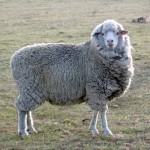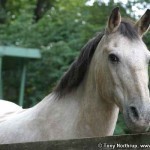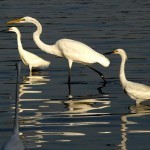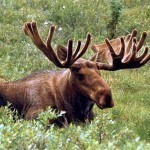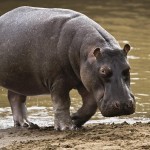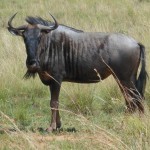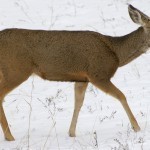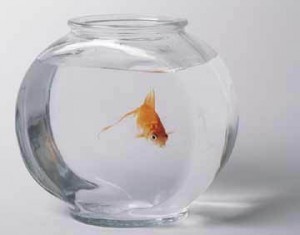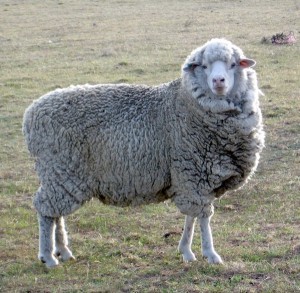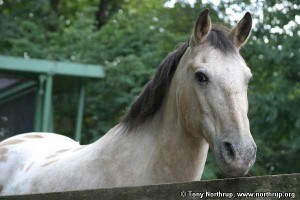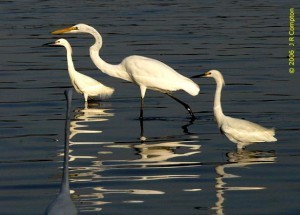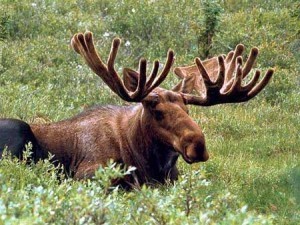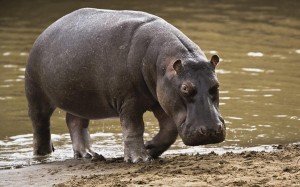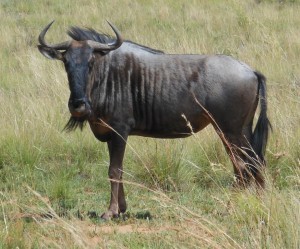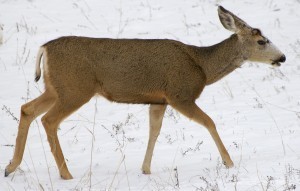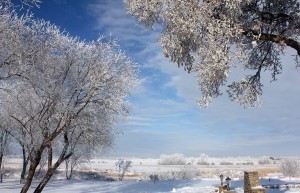Edward Willett's Blog, page 47
December 26, 2012
The Boxing Day solution to the Christmas Day rebus
Two things for you on Boxing Day. First, for no particular reason, my daughter Alice sings the Star Wars theme:
And second, as promised, the answer to the Christmas Day rebus.
Happy Boxing Day!
Wee Fish
Ewe
A Mare
Egrets
Moose
Panda
Hippo
Gnu
Deer
December 25, 2012
A Christmas greeting from me to you!
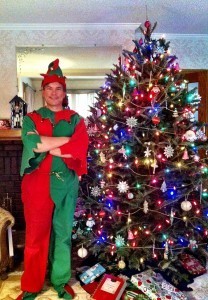 Yes, that’s me, as an elf, a role I played with…um…gusto at the Golden Apple Theatre’s Christmas cabaret Christmas Crackers on December 23.
Yes, that’s me, as an elf, a role I played with…um…gusto at the Golden Apple Theatre’s Christmas cabaret Christmas Crackers on December 23.
On the wall that evening were photos similar to the ones below: my wish for you this holiday season.
(And if you really can’t figure them out, I’ll post the answer on Boxing Day.)
December 24, 2012
A Christmas tradition: ‘Twas the Nocturnal Time of the Preceding Day to the Day We Call Christmas
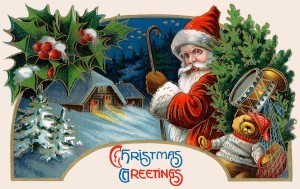 There’s a great song called “Christmas Cliches” in which the singer expresses a love of all the Christmas things that come ’round year after year, from plywood reindeer on the roof to Johnny Mathis on the radio. One of the reasons we love Christmas (those of us who do, and you can certainly count me among that number) is that warm sense of tradition, of things that, despite all the changes in the world from year to year, you can count on remaining constant. It’s an island of stability in a tossing sea of chaos, to coin an overblown metaphor.
There’s a great song called “Christmas Cliches” in which the singer expresses a love of all the Christmas things that come ’round year after year, from plywood reindeer on the roof to Johnny Mathis on the radio. One of the reasons we love Christmas (those of us who do, and you can certainly count me among that number) is that warm sense of tradition, of things that, despite all the changes in the world from year to year, you can count on remaining constant. It’s an island of stability in a tossing sea of chaos, to coin an overblown metaphor.
So here’s a Willett Christmas tradition. Originally written for CBC Saskatchewan’s Afternoon Edition radio program, and first read at one of their Christmas open houses (a different one from the one at which I sang “Let it Snow! Let it Snow! Let it Snow!“), it’s been published or posted a few times since. Last year it got a lot of attention because it was noted by Ed Yong at Discover Magazine‘s website.
It’s not exactly A Charlie Brown Christmas, but I hope you enjoy it, whether for the first time…or the third or fourth.
Merry Christmas!
‘Twas the Nocturnal Time of the Preceding Day to the Day We Call Christmas
By Edward Willett, with apologies to Clement Clarke Moore
Listen to me read ‘Twas the Nocturnal Time of the Preceding Day to the Day We Call Christmas
’Twas the nocturnal time of the preceding day
To the day we call Christmas (which is, by the way,
Just a modern twist on the eons-old fight
To use feast and fire to end winter’s night).
And all through our dwelling (a.k.a. the house),
Not a creature was stirring, not even a mouse.
(Mus musculus—really a terrible pest,
But even a pest needs a bit of a rest.)
The stockings were hung by the chimney with care,
In hopes that Saint Nicholas soon would be there
(Though that old-fashioned chimney’s so energy-poor
That next year I’m making him use the front door!).
Our genetic descendants lay snug in their beds,
While sucrose-based snack foods danced jigs in their heads,
And mamma in her kerchief, and I in my cap,
Had just settled our brains for a long winter’s nap
(You wear hats to bed when you lack central heat;
It helps keep you warm from your head to your feet),
When out on the lawn there arose such a clatter,
I sprang from my bed to see what was the matter.
(I’m not really jumpy, but a noise in the night
Sets off animal instincts to flee or to fight.)
Away to the window I flew like a flash,
Tore open the shutters and threw up the sash
(Well, not really flew, it was more like a dash—
And my wife didn’t wake even after the crash).
The moon on the breast of the new-fallen snow
Gave a luster of midday to objects below
(Which makes sense, since the moon gets its glow from the sun,
Which means moonlight and sunlight in one sense are one!);
When what to my wondering eyes should appear,
But a miniature sleigh and eight tiny reindeer
(Rangifer tarandus, you could call them, too—
Here in Canada we know them as caribou).
With a little old driver, so lively and quick,
I knew in a moment he must be St. Nick.
(St. Nick is the patron of Russia, you know;
He was born fifteen hundred or more years ago!)
More rapid than eagles his coursers they came
(As fast as a peregrine diving on game),
And since his old sleigh had no window or door,
He shouted their names o’er the slipstream’s loud roar:
“Now, Dasher! now, Dancer! now, Prancer and Vixen!
On, Comet! on, Cupid! on, Donder and Blitzen!”
(An interesting mixture of names old and new—
Astronomy-biology-mythology stew!)
“To the top of the porch, to the top of the wall!
Now dash away, dash away, dash away all!”
As dry leaves that before the wild hurricane fly,
When they meet with an obstacle, mount to the sky
(That’s ’cause air piles up when it meets with a wall,
And the leaves, weighing little, rise too, and don’t fall),
So up to the house-top the coursers they flew,
With the sleigh full of toys—and St. Nicholas too.
And then in a twinkling I heard on the roof
The prancing and pawing of each little hoof
(Not to mention the cracking of each little shingle:
Reindeer weigh quite a lot, as does dear Mr. Kringle!).
As I drew in my head, and was turning around,
Down the chimney St. Nicholas came with a bound.
(I can only assume, since his legs didn’t crack,
That friction ’twixt him and the bricks held him back.)
He was dressed all in fur from his head to his foot,
And his clothes were all tarnished with ashes and soot
(And since so much creosote blackened his hide,
I no longer fear carbon mono-oxide);
A bundle of toys he had flung on his back,
And he looked like a pedlar just opening his pack.
His eyes, how they twinkled (reflecting the light)!
His dimples, how merry (one to left, one to right)!
His cheeks were like roses, his nose like a cherry
(I thought for a sec he’d been drinking my sherry);
His droll little mouth was drawn up like a bow,
And the beard on his chin was as white as the snow.
(And did you know that white hair is not really white?
It looks white because it’s transparent to light.)
The stump of a pipe he held tight in his teeth,
And the smoke it encircled his head like a wreath.
(We must forgive Santa this unhealthy sin;
He was born before all of the studies were in.)
He had a broad face and a little round belly
That shook, when he laughed, like a bowl full of jelly.
(It’s amazing, you know, that he’s lived for so long,
What with all of the things that he eats that are wrong!)
He was chubby and plump, a right jolly old elf,
And I laughed, when I saw him, in spite of myself.
(Laughter benefits heart, lungs and brain, it’s been said;
Maybe laughter’s why cheerful old Santa’s not dead!)
A wink of his eye and a twist of his head
Soon gave me to know I had nothing to dread.
(Body language, to Santa, is nothing unique;
He speaks every language, from Zulu to Greek.)
He spoke not a word, but went straight to his work,
And filled all the stockings; then turned with a jerk,
And laying his finger aside of his nose,
And giving a nod, up the chimney he rose.
(Apparently Nick spends his off-season time
At a school in Nepal, where he’s learned how to climb.)
He sprang to his sleigh, to his team gave a whistle,
And away they all flew like the down of a thistle
(Its surface is large, but it’s so very light,
That the slightest of breezes can make it take flight);
But I heard him exclaim, as he vanished away,
With his anti-grav reindeer and miniature sleigh,
“Though I may not be real, in the physical sense,
“Though I may not have mass, and I may not be dense,
“Though it’s true, scientifically, this isn’t right,
Happy Christmas to all, and to all a good-night!”
December 23, 2012
Retro Sunday: Ads from a 1930 children’s annual
A project I’ve had in the back of my mind for years is a book called Things I Found in My Mother-in-Law’s House, built around the many interesting mid-century knick-knacks, oddments, thingamobs and whatchamallits in this house where my wife’s family has lived since 1939 and which is now my home.
I did do a series of CBC radio spots on it a few years back, and several blog posts, but it has never coalesced into a book.
But, whether it becomes a book or not, I can at least continue to post Things I Found in My Mother-in-Law’s House on this blog, and that’s going to be my goal for your Sunday entertainment going forward.
Of course, today is not only Sunday, it’s just two days before Christmas, and there are one or two other demands on my time today, so this is more of a teaser: next week, I’ll be back with a longer blog built around one of the old children’s books in the basement, specifically the Child’s Own Annual, from (I’m pretty sure) 1930.
Today, just a couple of images. Next week: old ads. And after that…who knows? I’ll poke around and see what I can find, and what I can research.
First, the Christmassy cover:
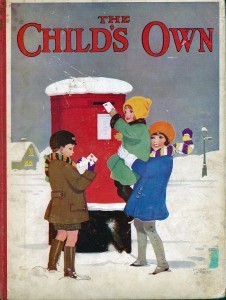 Quite lovely, though I’ve never understood why the English forced their boys to wear shorts in the snow. (The pictures in Winter Holiday by Arthur Ransome, a favorite book of mine as a kid, showed the same thing.)
Quite lovely, though I’ve never understood why the English forced their boys to wear shorts in the snow. (The pictures in Winter Holiday by Arthur Ransome, a favorite book of mine as a kid, showed the same thing.)
And then, the rather alarming back cover:
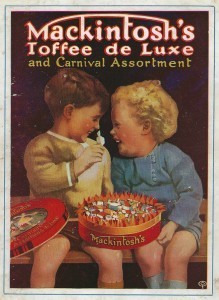 I confess I see these as demon children cackling as they devour the gaily wrapped souls of the damned (note the flames of hell licking around the container). But that’s probably just me.
I confess I see these as demon children cackling as they devour the gaily wrapped souls of the damned (note the flames of hell licking around the container). But that’s probably just me.
More next week…
December 22, 2012
Free Novel Saturday: Star Song, Chapters 3 & 4
 In the spirit of Christmas generosity, today I’m posting TWO chapters of
Star Song
. Coming in in the middle? The whole thing starts here with Chapter 1 and an explanation.
In the spirit of Christmas generosity, today I’m posting TWO chapters of
Star Song
. Coming in in the middle? The whole thing starts here with Chapter 1 and an explanation.
Enjoy!
Star Song
By Edward Willett
Chapter 3
The rain soaked Kriss to the skin before he had gone twenty steps down the road that seemed to lead most directly to the inviting sounds. Shivering, miserable, he hardly noticed when a passing groundcar splashed him waist-high.
I should have spent more time with the lieutenant, he thought, his teeth chattering. All night, maybe. He hoped his backpack and the leather wrapping were at least keeping the touchlyre dry.
He finally spotted the inn a short distance down the first side street he came to. Laughter and warm yellow light spilled into the rainy night as someone entered. Kriss broke into a splashing run and a moment later pushed open the front door.
Thirty or forty people, all Farrsians, filled the cozy stone-walled common room, along with smoke from the huge fireplace in the far wall and a savory smell of roasting meat that drifted in from the kitchen, somewhere off to the left. Kriss asked a passing waiter where he could find the innkeeper, and gratefully accepted the offer to wait by the fire. He threaded his way across the sawdust-strewn floor and stood as close as he could to the blaze, steaming.
After a while he turned to give his back a chance to dry, too, and took a better look at the room. Nothing in it gave a hint that ships leaped to the stars from only a quarter of a mile away. The smoke-blackened beams in the ceiling, the furniture of golden farssa wood, even the clientele, could have belonged to the little inn in Black Rock.
“What d’you want?” said someone to his right, and he turned to see a bald, wrinkled man a full foot shorter than himself squinting up at him suspiciously.
“Are you the innkeeper, sir?”
“I am. What of it?”
“I’ve just arrived in Stars’ Edge, and I’m looking for work. I wondered if—”
“Forget it.”
“But I’ll do anything,” Kriss said desperately. “Wash dishes, wait on tables, make beds—”
The innkeeper snorted. “Kid, there are a thousand like you rattling around this city. They come from the villages to make their fortunes. The smart ones go home.” He squinted at Kriss’s blond hair, plastered to his skull. “You’re an offworlder,” he said accusingly. “Why do you want to work in a Farrsian inn?”
“I grew up in Black Rock.”
The old man turned away. “Then go home. I’ve got no work for you.”
“Can you at least point me to another inn?” Kriss pleaded.
“Kid, I can point you to Salazar himself, if you want me to. But even he can’t give you a job when there’s none available.”
Kriss looked at him blankly. “Salazar? Who’s Salazar?”
“Anton Salazar? Controls half the town?” Kriss shrugged, and the innkeeper shook his head. “You really are new, aren’t you? All right, I’ll tell you where to find another inn. But it won’t do you any good.”
“I have to try.”
“Suit yourself.” He gave Kriss brief directions, then had a waiter usher him out.
Kriss set out in the wind and rain again, thoughts bleak, his hope leeching away as quickly as the warmth of the inn’s fire did when the door closed behind him. If all the innkeepers felt the same way…
Three hours later he knew they did. He visited eight inns. Some were as rustic as the first. Some were as modern as the police station. It didn’t matter. At two they threw him out at first sight. At the remaining six he heard a variation on the first innkeeper’s theme. The city was glutted with cheap labor, young people who came to the city to escape the villages. Most of them went home. Some of them starved…or worse.
At the eighth inn, one of the old-fashioned ones, the owner, though she didn’t offer him work, at least took pity on him and fed him soup and bread at a table near the fire. As he ate, he asked her, as he had asked all the others, what other inns he might try. He’d already been to all the ones she named.
“Well, then, you’ve tried them all.” She paused, frowning. “Except…”
Kriss paused with his soup spoon halfway to his mouth. “Except?”
“Andru’s. But that’s not a Farrsian inn. Andru is an offworlder. He caters to shipcrews—offers all kinds of outlandish food and drink, and a place to sleep off-ship. None of them ever stay in our inns,” she added bitterly.
“An offworlder?” Kriss felt a stirring of renewed hope. “Why didn’t anyone else mention him?”
The innkeeper raised her hands. “Now, wait a minute, lad. You may both be offworlders, but Andru is still a poor bet. He’s a strange man, with a whipcrack temper.”
“I have to try, unless there’s somewhere else…”
“There isn’t. Not for you. There are other places, south of the spaceport, but you’ll stay away from them if you know what’s good for you.”
Kriss nodded thoughtfully, thanked the innkeeper, and finished his meal. Then he set out into the cold and wet one more time, following the directions she had given him.
Andru’s was a mile distant, close to the spaceport. Plodding along the all-but-deserted streets, Kriss had far too much time to ponder what he would do if Andru turned him away, as predicted.
“I can always take up begging,” he muttered. “Or…” He swallowed, thinking of those “other places” the woman had mentioned. He wouldn’t go there, he thought. Not ever.
But he couldn’t help wondering how many other kids had once made exactly the same promise to themselves—and broken it when they got cold and hungry enough.
The warmth he had soaked up with his soup and bread was only a pleasant but hard-to-recall memory when at last he stood in front of Andru’s. To his surprise, it looked as rustic as the first he had visited: two stories, wood and plaster, with a steeply sloping slate roof and two tall, red-brick chimneys. Blue smoke rose and faded away into the wet black sky above the streetlights’ glare.
Kriss mounted the weathered wooden porch and stepped through the big steel-bound door into the common room.
At first sight it, too, was pure Farrsian. Its polished wooden floor glowed orange in the light of the fire crackling in an enormous stone hearth to his left. Rough black beams spanned the ceiling, and a long bar made of black stormwood, matching the tables and chairs, stretched across the opposite wall, a brass rail gleaming at its base.
But the room was lit not only by the fire, but also by glowing white spheres suspended on almost-invisible wires, and behind the bar red, blue and yellow liquids bubbled and frothed in convoluted tubes of chrome and glass. As Kriss watched, the barkeeper, a gray-haired giant of a man, drew a tiny glass of smoking green fluid from the machinery and handed it to a thin, black-skinned woman.
A strange quiet also gripped the room; the dozen or so patrons, all offworlders, sat talking to one another in low voices. The only other sounds were the crackling of the fire and the gurgling of the bar machinery. Kriss felt like an intruder, though no one had even looked up when he entered.
He wiped his feet and walked across to the barkeeper, who was pouring something from a golden can into a funnel in the machinery. “I don’t sell liquor to children,” he said without looking around.
Caught off guard, Kriss said nothing, and the big man turned to face him. “Well?”
“Uh—I’m looking for Andru.”
The barkeeper crushed the can with an easy squeeze of his hand. “You’ve found him.” He tossed the crumpled container into a chute in the wall.
Kriss blinked and examined the man more closely. Even for an offworlder, Andru was tall, as well as broad-shouldered and deep-chested. He returned Kriss’s gaze with eyes as silver-gray as his hair, set in a furrowed, dark-tanned face, and leaned forward, splaying his massive, calloused fingers on the wet black wood of the bar. “State your business or get out,” he growled. “I’m not here to be stared at.”
Kriss drew a deep breath to prevent stammering, then explained what he wanted. Andru was shaking his head before he finished.
“Not interested.”
“But I’ll do anything—”
“I said I’m not interested.”
Kriss thought of the cold streets. “How much for a room?” he asked desperately.
“Ten feds.”
“I have three quarter-feds. Can I at least sit up the night in your common room?”
For answer, Andru held out his hand. Kriss slipped his arms free of his pack straps, then thumped the pack down on the bar. His first day in Stars’ Edge was going to finish off his resources. Then what?
At least I’ll have one night off the streets, he thought. Opening the pack, he began digging for the small pouch that contained the coins. He removed the touchlyre and set it aside, noting with relief that the leather wrapping was still dry. Then he started pawing through his clothes. When at last he found the coin pouch and pulled it out, he glanced up to see Andru fingering the touchlyre’s covering.
“What’s this?”
Kriss grabbed the instrument and shoved it back into the pack. “A musical instrument.” He held out the little pouch. “Here’s your money.”
Andru ignored it. “Can you play it?”
“Why?” Kriss asked, still extending the pouch.
Andru gestured at the small crowd. “Business is slow. Maybe I need entertainment.”
The notion startled Kriss. Play in public? After all Mella’s warnings about keeping the instrument secret? After telling himself the best way to honor her memory was to continue to honor her wishes?
Mella is dead, he thought harshly. Her reason for telling me that died with her. And what will I do if I don’t take this chance? Starve in the streets? Take Elcar’s advice and become a farm hand? Or try those places “south of the spaceport”?
He made up his mind, but he still felt guilty as he met Andru’s gray eyes. “I can play it.”
“We’ll see.” The innkeeper walked the length of the bar to Kriss’s right and into a short hallway. Kriss grabbed the pack and followed.
Two doors opened into the hall from the left; at the end a stairway doubled back, up to the second floor. Andru opened the first door and motioned Kriss through.
He stepped into a small room paneled with dark wood. Rain spattered the tiny square window in the back wall. Andru closed the door, then walked around Kriss and sat down behind a battered computer interface atop a wooden desk, the room’s only furnishing except for two straight-backed chairs. “Play,” he commanded.
“And if I play well?” Kriss asked, setting his pack on the desk and opening it.
“Board and room and fifty percent of whatever the audience gives you.”
Kriss didn’t know if fifty percent was a fair offer, and didn’t really care. All he cared about was the board and room. “Agreed.”
He took his time unwrapping the touchlyre. What should he play? What kind of music did offworlders like?
He drew the gleaming instrument from the white leather, and, as Andru leaned forward with interest, sat down and touched the copper plates, closing his eyes. A faint, singing chord filled the room as the silver strings stirred to life.
I’ll play “Red Meadows,” he decided. One of the first folk songs Mella had taught him, it had a simple but beautiful melody.
Maybe too simple. He hesitated.
Andru shifted in his chair. “Play!” he ordered again, but Kriss hardly heard him. Weary, warm again at last, eyes closed, he floated almost on the edge of sleep, yet he had to play something. All his hopes might depend on it…all his hopes…
His mind drifted back to that moment beside the trail when he had seen the starship leap into the sky above the ridge overlooking Stars’ Edge, and his heart filled again with the awe and joy he had felt then—and the strings spoke. Just as they had the night of Mella’s death, they played, not a tune he consciously shaped, but a song drawn from his deepest thoughts and emotions. They sang out his story, sang of the years of isolation and longing, of Mella’s death and his long journey, and above all of his longing for the stars, for his unknown past, for the family that might be waiting out there somewhere; and somehow all the shattering events of the past few days intertwined with the longing and his vision of that star-bound ship to end the music with a joyful chord of hope he would not have believed possible.
Utterly exhausted but content, he opened his eyes as the final ringing of the strings died away. Andru sat with his head bowed, his gnarled knuckles white against the dark wood of the arm of his chair. Finally he took a deep breath and looked up to meet Kriss’s gaze. “You’re hired,” he said, his voice rough. “You’ll begin playing tomorrow night.” He stood abruptly, strode to the door, and jerked it open. “Zendra!”
Hurried footsteps approached and a plump middle-aged Farrsian woman appeared in the doorway. “Yes, Andru?”
“Take Kriss to room six. He’s been hired to entertain.” He started to leave, then hesitated and turned back. Coming to Kriss, he reached down and almost reverently touched the smooth black wood of the instrument. As he straightened, his eyes met Kriss’s for a brief moment, then he wheeled and was gone.
Stunned by the sudden shift in his fortunes, Kriss stared after him. Had he really seen tears in the innkeeper’s eyes? “I’m imagining things,” he muttered. “I need sleep.”
“Follow me and you can have some.” Zendra’s voice from the door startled him; he’d forgotten she was there. He got up and returned the instrument to its wrapping, then followed her, getting a friendly smile. “You look like a drowned rat,” she commented as she led him up the stairs.
Barely even conscious, Kriss didn’t answer. He tripped twice, unable to lift his feet high enough to clear the steps. Zendra steadied him with a firm hand, and led him to a room close by the head of the stairs. “I won’t bother calling you for breakfast,” she said just before closing the door.
“G’night,” he mumbled. Stripping off his wet clothing and letting it lie where it fell, he crawled into bed, and into sleep.
###
Chapter 4
Kriss opened his eyes and blinked at the bright rectangle of sunlight on the white plaster wall. Mella will be calling me for breakfast soon, he thought sleepily; then frowned. The sunlight had never before struck his bedroom wall in quite that place or in quite that shape…
An instant later all the memories of fires, journeys, storms and spaceships came rushing back, and he closed his eyes for a moment, wishing it had all been a bad dream—and then suddenly felt guilty, because that wasn’t quite true. He didn’t wish it had all been a dream. Oh, he wished Mella were still alive; but having a job in Stars’ Edge, almost within sight of the spaceport, and working in an inn that catered to offworlders—he couldn’t wish that was a dream. But not wishing it made him feel disloyal to Mella’s memory, just like revealing the touchlyre to Andru had the night before.
He lay there, trying to sort out his feelings (and failing) until hunger finally drove him to his feet. The only other door in the room besides the front one proved to open into a bathroom, and twenty minutes later, clean, dressed in fresh clothes from his pack and feeling well-rested for the first time in days, Kriss made his way downstairs, wondering how to get breakfast.
Or dinner; a clock above the fireplace informed him he had slept past noon. Only three men sat in the common room, talking together in low voices at a corner table; they didn’t even look up as he entered, but Zendra, wiping glasses behind the bar, did. “Hungry, are you?” she said before he could open his mouth. “Sit anywhere and I’ll see what I can find.”
“Thank you.” He looked around and picked a table near a window that was thrown open to the cool air, washed clean by the night’s rain. The clatter of wagons and whine of groundcars drifted in from the bustling street. He found it hard to believe it was the same rain-swept, deserted route he had trudged the night.
Zendra returned through the swinging kitchen door and crossed to his table, banging a platter loaded with bread, meat, corn, and a glass of ice-cold frenta juice down before him. “Sleep well?”
“Umph,” Kriss replied around his first mouthful.
Zendra laughed. “Does me good to see you dig in like that. A compliment to the chef, you might say.”
He swallowed and reached for the juice, taking a big gulp before asking, “Where’s Andru?”
“I don’t know. Out somewhere. Why?”
“I want to know what my duties are.” Kriss put down the glass and cut another slice of meat.
“Oh, I can tell you that,” Zendra said with an airy wave of her hand. “You’re to entertain—that’s it. And that’s not until tonight. Until then, do whatever you like. The day is yours.” She winked one dark brown eye, then turned away with a sigh. “Unlike some of us…”
Kriss emptied the plate at a more leisurely pace than he’d begun with, then got up, stretching, and went out onto the sunlit porch, where he stood surveying the street, thinking how nice it was not to have to carry his blasted backpack, now locked safely away in his room. The day was his, Zendra had said, so where to first?
He grimaced. Unfortunately, there was only one answer: the police. He had to tell Lieutenant Elcar where he was staying. “Not that Elcar is going to do anything,” he muttered, but even that couldn’t dim his enjoyment of the new day. In fact, as he walked toward the spaceport under the rainbow-hued shop awnings that lined the street, he thought Stars’ Edge looked ten times cleaner and brighter than it had the day before.
Even the stark black-and-white vestibule of the police headquarters seemed cheerier, Kriss thought. He smiled back at the pretty young woman who had replaced the bored gray-haired dragon of the previous night.
His new address safely ensconced in the police computer, Kriss stood on the steps of the headquarters and gazed around. Where to start exploring? Though he had been over much of the city the night before, it was one thing to see it in a rainstorm while drenched and miserable and another to see it warm and dry in the sunshine.
Another easy question: he couldn’t take his eyes off the spaceport. He watched an enormous transport being loaded with cargo from one of the starships, and decided the rest of the city could wait. Down the steps he went, and a few hundred feet around the perimeter to the nearest gate, where a green-uniformed man in a glass-walled booth stopped him. “Port pass,” the man demanded.
“Uh…I don’t have one.”
“Then you can’t go in, can you?”
“But I just want to look around… “
“No pass, no entry. Now step aside; you’re holding up everybody else.”
Kriss glanced back and saw a line had already formed behind him. Shamefaced, he retreated, and plopped down on the steps of an empty tower across from the gate. Resting his chin on his fists, he gazed moodily across the spaceport.
A girl about his own age descended the ramp of the smallest starship and crossed the field to the sprawling customs building. Kriss watched her with envy. What strange worlds had she visited while he was stuck in Black Rock? She’d been across the galaxy, and he couldn’t even get onto the landing field.
He straightened. “I will get into space!” he declared, banging his fist on his knee for emphasis—then winced and rubbed the place.
For the rest of the afternoon he wandered around the spaceport fence, but he had no better luck getting through any of the other three gates, or at the main building. Finally he started back to Andru’s through lengthening shadows. Maybe the innkeeper could tell him how to get a port pass. He had to see those starships up close…
The first flutterbees began tumbling in his stomach as he approached the inn in the sunset light. He had never even played in public before—how could he hope to entertain a roomful of people who had traveled across the galaxy? What if they laughed at him?
Finding the common room almost full didn’t help his nerves. Zendra and a thin, hard-faced woman he hadn’t met moved among the offworlders, serving food and drinks. Last night’s quiet must have been due to the late hour, Kriss thought; tonight loud talking and raucous laughter made it hard for him to hear his own voice when he asked Andru, “When do I, uh…?”
“Eat first,” Andru said. His voice carried through the din with no apparent effort. “They’ll listen better when most are drinking instead of eating.”
Kriss nodded, mouth dry, and found a seat at an empty table near the bar. The hard-faced woman served him without a word, but he could eat only a little and, once the plates were cleared away, couldn’t have told anyone what had been on them.
All too soon Andru came over. “It’s time.”
Kriss nodded and went upstairs to his room. He felt a little more confident as he took the touchlyre from its leather wrapping, but the feel of the smooth wood also brought back Mella’s repeated warnings to never let anyone see it. Showing it to Andru had been bad enough; now he intended to reveal it to a hundred strangers, and offworlders at that. Feeling guilty again, he stepped into the hallway and locked the door behind him.
Andru awaited him at the foot of the stairs, and led him through the crowded room to a chair on a low platform by the fire. Kriss sat down, feeling naked, and the innkeeper stepped up beside him. “Guests!” Heads turned, but the murmur of conversation continued. “Guests!” Andru said again, and this time the note in his voice caused the gathered offworlders to set their drinks down and fall silent.
The innkeeper’s gaze traveled around the room for a long moment before he spoke again. “You have seen little entertainment in my inn over the years, for I have seen few entertainers suited to my guests’ tastes. But tonight is different. My guests, I present Kriss Lemarc, minstrel of Farr’s World.”
A handful of people applauded politely, but most, after a glance at Kriss, simply resumed their interrupted conversations. “Begin,” Andru told Kriss, and stepped down from the platform.
Kriss looked down at the instrument and touched the plates with trembling fingers. Infected with his nervousness, the touchlyre sounded a weak, frayed chord. Andru frowned, and the nearest offworlders glanced up, then looked away, shaking their heads.
Kriss ran his tongue over dry lips. Could he repeat what had happened the night Mella had died, and what he had summoned again last night when he auditioned for Andru? It hadn’t really felt like he had done anything at all, except…
…except remember. And feel. He closed his eyes, and pictured himself sitting on the gray rock ledge by the still lake where he had so often gone to play the instrument…
…the place he had been when Mella died.
He heard the music, the real music, begin, and it strengthened and steadied as he built the remembered scene detail by detail, pushing Andru’s out of his consciousness. He forgot the offworlders and played only for himself, sitting in the sun with the cool, clear water lapping at his bare feet. The incredibly vivid image seemed to both invoke the music and be evoked by it; and because he had been thinking of Mella, her death and all that came after it replayed itself in his mind and, though he was hardly aware of it any more, in the music, until once more he saw the starship leaping into the sky and his song ended with a dream, his dream, the dream of rediscovering the contentment of the little lake by Black Rock—only this time, discovering it with his true family, somewhere among the stars.
Slowly Kriss surfaced from wherever the music had taken him, and heard…nothing. The room was so quiet he snapped his eyes open and looked up, convinced everyone had walked out.
But no one had left. Instead they sat, improbably still and silent. A few stared at him, but looked away when his eyes met theirs; others gazed downward, or at the fire. Many had their eyes closed. One silver-haired woman cried silently, body shaking, fire-lit tears on her cheeks.
Kriss stared at them in amazement, then looked down at the silver strings of the touchlyre, shining red in the firelight, remembering Andru’s reaction the night before. What did others hear when he played the touchlyre in this strange new way?
Someone set a large wooden bowl by his feet and he looked up, startled, into the innkeeper’s gray eyes. “No more,” Andru said in a low voice. “But stay put until I signal you.” He returned to the bar, leaving Kriss feeling drained and bewildered.
The woman who had wept suddenly got up from her table, dropped a coin into the bowl, and then hurried almost blindly from the room. As if the clatter of the fed-piece were a signal, others came forward; only when they returned to their tables did they begin to talk to one another again, so that the murmur of conversation gradually returned.
When no one had come up for two or three minutes, Andru waved, and Kriss carried the bowl to the bar. The offworlders glanced up as he walked by; some smiled, then looked away almost shyly, as though uncertain how to react to him.
He gave the bowl to Andru, who overturned it, spilling thin plastic bills and ceramic coins across the wet, dark wood of the bar. He counted quickly. “One hundred and seven feds. That’s fifty-three and a half apiece.” He pushed Kriss’s share over to him, then moved to the far end of the bar to serve someone.
Kriss stared at the money in awe. Over fifty feds! He’d never seen that much money in his life. “Maybe I’ll buy my own spaceship!” he breathed, then gathered up the coins and bills and dropped them into his pocket, where they made a pleasantly large lump. He tucked the instrument under his arm and went up the stairs two at a time. So that was all there was to it; play the instrument a few minutes, pocket the feds, and take it easy the rest of the time. Even if he never got off the planet, he had it made.
But he would get off the planet. In fact, he intended to start working on the problem right away. Strike while the iron was hot, and so forth. Some of those offworlders looked like at the moment they’d do anything he asked, and it just so happened he had something to ask. He locked the instrument in his room and headed downstairs again, where he took a seat on a barstool and surveyed the crowd. Three offworlders in particular caught his eye, and he sat up straight to see them better.
They sat at the table where he had eaten: two young men, a few years older than him, and a girl close to his own age. She looked familiar, and suddenly he remembered envying her as she crossed the spaceport that afternoon.
The fifty feds in his pocket had erased a lot of that envy; he fully expected to be jauntily descending from a starship into an alien spaceport himself before too long. But his curiosity remained, and they seemed as likely prospects as any, so he straightened his vest, smoothed his shirt front, ran his fingers through his hair, then casually walked across the room to the trio’s table.
“Mind if I join you?” he asked, trying to sound suave.
The girl’s mouth quirked slightly, but she glanced at her two companions, who nodded. “Be our guest,” she said, and Kriss pulled out the fourth chair at the table and sat down.
He took a closer look at the girl, who watched him steadily with hazel eyes. Slim, with short-cropped light-brown hair, and at least half a foot shorter than him, she could almost have passed for a boy if her face weren’t so pretty.
One eyebrow lifted. “Do you approve?”
Kriss started. “I’m sorry. I didn’t mean to stare—”
“Oh, I don’t mind.” A smile lit up her whole face and showed dimples. “As long as you answer the question. Do you approve?”
“Uh…yes.” He glanced at her male companions. The one on her right, a well-built young man with hair and eyes the color of the girl’s, watched him without expression. Kriss smiled tentatively, but got nothing in return.
“Well, I approve of your looks, too,” the girl said cheerfully. “Now that that’s out of the way…what ship are you from?”
“Ship?”
“Ship. You know, the tall things at the spaceport?” She stared at him, and her smile began to fade. “You are off a ship, aren’t you?”
He cleared his throat. “Not exactly. My parents were offworlders—but I grew up on Farr’s World.”
The man on her right stood abruptly. “It’s time we returned to the Thaylia,” he said coldly. “Come, Tevera.”
She nodded and stood, as did the other man. “Peace be yours,” she said formally, then her companions escorted her out.
Kriss stared after them, bewildered. What did I say wrong?
He glanced around the room again, but the strange experience had soured him on approaching any more offworlders. Instead, sorely puzzled, he returned to his room, took a shower and went to bed.
In the middle of the night he woke and shot upright, unsure if dream or reality had disturbed him. He listened. At first he heard only the pounding of his heart, but as he took a deep breath and started to settle back, a door opened down the hall. Instantly his own door, which he had closed and locked, slammed shut across the space of an inch or two. Footsteps pounded away and someone shouted.
He threw back the covers and dashed to the door, opened it a crack and peered out in time to see an offworlder in a bathrobe picking himself up off the floor.
“Who was that?” he spluttered, glaring at Kriss.
“Where did he go?”
“Downstairs and outside—after knocking me over first! What’s going on?”
“I wish I knew.” Other doors opened up and down the hall as awakened guests looked out to see what was happening, but Kriss closed his own and locked it again. Someone had been trying to break into his room—someone had broken into his room. Only the other man coming unexpectedly into the hall had kept that someone from walking right in and…what?
He turned on the light and looked around. Almost at once he saw the pile of bills and coins he had emptied from his pocket onto the table by the bed, and could have kicked himself. Everyone in the inn that night had known he’d made that money, and he’d just left it lying in the open. He had to find a safer place for it or he’d be asking for another break-in.
Another thought made him pause. Andru would want to know what had happened…but not tonight, he hoped. “He would have been in here by now if he wanted to see me tonight,” he murmured, then yawned, his wakefulness fading with the excitement. Still, he paused and looked at the door before returning to bed. “This is silly,” he muttered, but took a chair and stuck it under the doorknob anyway.
Despite that precaution he slept fitfully, listening, every time he woke, for someone at the door.
December 21, 2012
To mark the first day of winter…
A picture-perfect Saskatchewan winter day, and a song! (In lieu of a longer blog post, because too much pre-Christmas running around for that.)
Enjoy!
Let it Snow, Let it Snow, Let it Snow
December 19, 2012
Things my editor told me
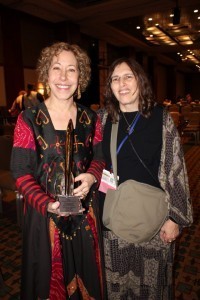 I think I’ve mentioned—though no more than a gazillion times or so, so you might have missed it—that my next book to be published by DAW will be Masks, first book in a trilogy (and hopefully series) that will continue with Shadows and Faces.
I think I’ve mentioned—though no more than a gazillion times or so, so you might have missed it—that my next book to be published by DAW will be Masks, first book in a trilogy (and hopefully series) that will continue with Shadows and Faces.
Earlier today I spent a couple of hours on the phone with Sheila Gilbert, my editor (that’s her on the right in the picture, with her co-publisher and co-editor at DAW, Betsy Wollheim, who won the Hugo Award for Best Professional Editor Long-Form this year at the World Science Fiction Convention in Chicago), who had a…ahem…few notes about Shadows, the second book. Plus a few additional notes for Masks which will require more rewriting of that before I even start the rewrite of Shadows…or plunge fully into Faces.
I’ve gone through this process several times now, but you haven’t, so I thought you might be interested to know, not so much pecifically what Sheila had to say about Shadows (since the specifics would be meaningless until the book comes out), but the kinds of things she always tells me…because they’re the kinds of things any writer can benefit from.
And you know what? Pretty much everything can be lumped under one term: believability. Which is perhaps a bit broad, so let’s break it down into three categories: believability of the world, believability of the characters, and believability of the plot.
Let’s begin with worldbuilding, shall we? As, indeed, many fantasy writers do. But here’s the thing: no matter how much thought you put into your world before you begin writing, you will find yourself, as you write, wandering into odd corners of that world that you didn’t think through in detail beforehand because there was no need.
In the heat of writing, it’s easy to paper over cracks in the world and pretend no one will see them, but the bright light of editorial review has a way of making them stand out. It’s a good idea to fill them in properly before readers start poking at the world, too, because you can bet someone out there has a pocket knife and is going to be digging the point into anything that looks a bit flimsy.
So, yes, there are a number of things about the world of Masks and Shadows and Faces that I haven’t yet thought of deeply enough to ensure believability, which Sheila gently but firmly brought to my attention.
The believability of characters is even more important. For me, this often means adding more depth, more back story to inform or motivate the current actions of the character, or additional scenes in which we see the character in interaction with other charactesr so we get a better sense of how they relate to each other.
Sometimes changes are more major. We made just such a change during our discussion this morning: we’ve decided to make my main character, Mara, two years older—15 rather than 13. Masks was originally conceived as a one-off, fairly short, YA fantasy, not necessarily for DAW. As the story has grown and become both more complex and darker than I originally envisioned, the things Mara goes through and the way she reacts to those events seem too much for the very young teen she started out to be. So she’s gaining a couple of years, and in the process, solving a number of believability issues.
Then there’s the main bad guy. In Masks, he’s largely offstage because of the way that book plays out, but in Shadows he moves much more to the center of things…and at the moment, he’s still a bit of a cipher. I need to develop him more, for, as Sheila said (and here’s a quote that every writer should keep in mind), “If your character doesn’t face a strong enough challenge or enemy, she’s not that strong and her victories don’t mean as much.”
Then there’s believability of the plot. Generally this takes the shape of, “the way you had things happen was awfully convenient for the writer, but it didn’t really make sense in terms of the way things would happen in the real world.”
One specific example from Shadows: the two men-at-arms who conveniently drowned and removed themselves from the story so that the character they were guarding could be cast ashore all by his lonesome perhaps should at least have been smart enough not to wear armor in a boat, armor which a little-too-neatly dragged them under and out of the tale.
While it’s true a fictional world isn’t the real world, and everything that happens in it happens through the artifice of the writer, and the characters are, by any meaningful definition, nothing more than puppets being manipulated by the author, the trick for all of us tellers of tales is to make it seem as if everything that happens occurs not because the writer made it happen but because of the actions of the characters and the nature of their world. If the reader begins to see the author’s hand pushing scenery around and pulling strings, then the illusion is broken and the story is unsatisfactory. Deus ex machina is always a temptation when story problems arise.
Resist the temptation.
I have occasionally heard the opinion that fantasy is easier to write than other forms of fiction because “you can just make stuff up.” In fact, writing believable stories set within the confines of a fantasy world is, I believe, harder than writing stories set in some aspect of the real world, because you can take nothing for granted. It’s the difference, in movie terms, between shooting on location and shooting in a soundstage. In the former case, part of the work is done for you by the sky, the mountains, the trees, the buildings, while in the latter, every single thing has to be built or added in later via CGI.
If I do my job well, you won’t be able to tell. If I do my job poorly, you might still enjoy the story, but there’ll always be that little niggling voice that says, “well, that looked fake,” not to mention, “where did they cast those awful actors?”
Left to myself, I’m sure that would happen more often than it does.
Good editors mean good books. Don’t let anyone tell you different.
December 18, 2012
The science of Rudolph’s red nose
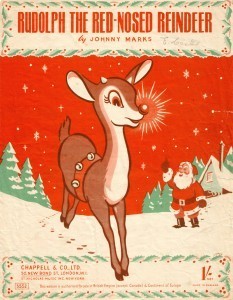 Long-time readers of my column will be aware of how closely I like to keep tabs on aerotarandusdynamics, the shamefully under-studied science of flying reindeer.
Long-time readers of my column will be aware of how closely I like to keep tabs on aerotarandusdynamics, the shamefully under-studied science of flying reindeer.
I am pleased to note that there has been a small but significant development in aerotarandusdynamics research this year, but before I get to that, perhaps I should recap some of what I’ve written before on the topic, just to refresh your memory.
“Aerotarandusdynamics” comes from aero, air, tarandus, the latter part of the scientific name for reindeer, Rangifer tarandus, and dynamics, moving. Hence, aerotarandusdynamics is the study of reindeer moving through the air.
How do reindeer fly? That, of course, is the central question of aerotarandusdynamics.
For any object to fly, it must overcome gravity with lift. Airplane wings are designed so that the air passing over them must travel further, and therefore faster, than the air passing beneath them. Fast-moving air exerts less pressure than slow-moving air, so the wings–and with them, the airplane–are forced upward.
A large male reindeer such as, say, “Dasher,” stands 1.2 metres at the shoulder and can weigh 115 kilograms. (All flying reindeer have names, for there are only nine of them in the world, making them extremely endangered, and they are all in captivity, working animals in the service of a corpulent recluse who lives in the Far North.)
How can such a large animal generate enough lift to fly? Well, both male and female reindeer have long, slender antlers with branching points that are “palmate”—broad and rather flat, like the palm of a hand. The Standard Theory among aerotarandusdynamicists is that in flying reindeer, these palmate points have become exquisitely effective lifting bodies. When the reindeer make high, bounding leaps, the air rushes over their antlers, creating enough lift to send them soaring. Once airborne, they use their broad feet to “row” through the air.
The Standard Theory has its detractors, of course. More recently, the Gasbag Theory has gained traction in the field’s leading journal, Popular Aerotarandusynamics. Gasbaggers note that, like other herbivores, reindeer generate large quantities of lighter-than-air methane in their digestive tracts, and theorize that creatures’ weight could be partially offset if this gas, rather than being expelled, were instead stored inside a specialized, flexible internal bladder. Alas, the existence of such an organ must remain speculative until a specimen can be dissected.
Supporters the Gasbag Theory also feel that this methane might provide the fuel for a form of rocket propulsion that could help explain the reindeer’s remarkable speed…but again, more work is needed.
I do not know which of these theories the researchers in the Netherlands and Norway who have just published a new paper on the science of flying reindeer in the Christmas issue of BMJ.com subscribe, but their work, though not addressing this central question, is still a valuable addition to this still-fledgling field of study.
They chose to study the bright red nose of the leader of the flying reindeer herd, the quaintly named Rudolph. Previous researchers have suggested that this nose might be a secondary sexual characteristic, like the red breasts of male robins, with perhaps the same attracting-a-mate function, but not so, according to these researchers.
They say that Rudolph’s nose is red because “it is richly supplied with red blood cells which help to protect it from freezing and to regulate brain temperature,” essential for flying under the extreme temperatures often encountered during the reindeer’s annual trans-global flight on Christmas Eve in the service of their mysterious owner, who styles himself “Santa Claus.”
Micro-vessels in the in the nose are vital for delivering oxygen, controlling inflammation, and regulating temperature, the scientists note, so they set out to see if perhaps Rudolph’s nose had more of these than human noses.
With a hand-held video microscope, they studied the noses of five healthy humans, and found a circulating blood vessel density of 15 millimetres of blood vessels per square millimeter of nasal tissue. Then they looked at the noses of two reindeer—just ordinary ones, not flying ones—they found a 25-percent higher density, carrying a super-rich concentration of red blood cells.
The reindeer noses also had a higher density of mucous glands, which the researchers say help “maintain an optimal nasal climate during changing weather conditions and extremes of temperature as well as being responsible for fluid transport and acting as a barrier.”
Clearly, Rudolph’s nose is not a mating display at all, but an exquisitely adapted organ that has earned him his spot at the head of the herd because he is best suited to facing the icy winds to which the leader is exposed more than any other of the animals.
One might note, though the authors of the article did not, that Santa Claus’s nose is generally portrayed as red as well: perhaps, he, too, has a unique adaptation in this area.
I find it extremely encouraging that at last there is new research into aerotarandusdynamics, or at least a related topic. Perhaps more students will now choose to specialize in this challenging, chilly, but ultimately rewarding field of study.
I’m writing a play…and using this song
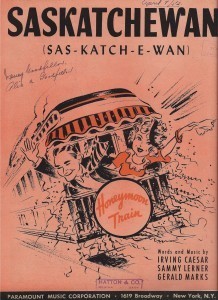 So, I’m writing this play. Its working title is The Piano Bench: A Love Story with Music and Ghosts. If all goes well it might even make it on stage late next year.
So, I’m writing this play. Its working title is The Piano Bench: A Love Story with Music and Ghosts. If all goes well it might even make it on stage late next year.
Why? Well, therein lies a blog post.
The house in which I live has been in my wife’s family since 1939. (It was built in 1926,) Her grandparents, Sam and Nancy Goodfellow, were patrons of the arts in Regina, probably more due to Nancy’s influence than Sam’s. (It was Sam’s First World War memoirs I posted recently.) Nancy, who was born in England, by all accounts was a wonderful singer and perhaps could have had a professional career had she pursued it. She didn’t, but she never lost her love for music, and as a result, among the many interesting things in this old house are stacks of sheet music from the 1930s and ‘40s, much of which was tucked away in the piano bench of the soon-to-be 100-year-old grand piano in our living room.
A few years ago I did several spots on CBC Saskatchewan’s Afternoon Edition radio show on “Things I Found in My Mother-in-Law’s House,” in which I researched various fascinating artifacts found here. We did make mention of the music in the course of talking about the piano, and in fact Colin Grewar, the host, and I made a little music together, with a rendition of “When There’s a Breeze on Lake Louise.”
I’d still like to do a coffee table, lots-of-photos book of Things I Found in My Mother-in-Law’s House (any publishers interested, drop me an email!) but I found myself particularly intrigued with the music…and that’s where this play came from.
The Piano Bench isn’t autobiographical, but the main character (a nightclub singer in search of new material) does end up moving into an old house with a piano bench full of music…but also with ghosts. Not scary ghosts, but sad, romantic ghosts, whose tale of a love affair gone astray plays out in parallel with events in the present day. There’s only one set, the living room of the house, with the piano—and its bench—at its centre, and along the way there’s a lot of music—all of it music found in the piano bench of my own house.
The list of music is long, and covers everything from the well-known to the deservedly obscure to the unfairly forgotten to the novelty hits like…well, like the one whose image graces this post.
“Saskatchewan” (helpfully broken down to Sask-Katch-E-Wan, you’ll note, for those unsure as to how to pronounce it…and really, they still got it wrong: up here, we mostly say, “S’katchwan,” two syllables, tops) featured words and music by Irving Caesar, Sammy Lerner (who, among other things, wrote the theme song for Popeye—in less than two hours!), and Gerald Marks. I can’t prove it, but I think I can safely say none of them had ever been in Saskatchewan, since the song is all about downhill skiing and includes the line, “We might have been in the Alps.” I love my province, but although we do boast the highest point between the Rockies and the Laurentians (the Cypress Hills), even those you would have to really work at to mistake for the Alps.
I’m almost sure this song will have a place in my play, about which I will keep you posted, especially if/as it moves toward production.
But in case it doesn’t, I leave you with the timeless lyrics of “Saskatchewan,” which, you will immediately see, is not the easiest thing in the world to rhyme, without doing serious grammatical damage. Still, a valiant attempt!
Enjoy!
CHORUS
What a delight when I think of the night that I met you on,
in Saskatoon, Saskatchewan,
Oh, what a thrill was the spill down the hill I upset you on,
in Saskatchewan;
Swift as the breeze was the race on the skiis I would bet you on
in Saskatoon, Saskatchewan;
I’d walk ahead while you rode on the sled that I’d fetch you on,
in Saskatchewan;
We might have been in the Alps,
Just like you seen in the papers,
Risking a couple of scalps,
And cutting Canadian Capers;
It’s gonna be nice to come back to the ice that I’d sketch you on,
in Saskatoon, Saskatchewan,
I’ll charter a plane or a honeymoon train that I’ll get you on,
in Saskatchewan.
WINTER INTERLUDE
And tho, it’s ten below, when you’re in love,
you feel as tho it’s ninety-eight above
and so, away you go,
across a Paradise of ice and snow, Oh!
REPEAT CHORUS
December 17, 2012
First book from writers I advised as writer-in-residence is released!
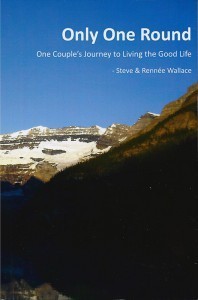 On Saturday I attended a book launch at the Regent Park branch of the Regina Public Library, and no, it wasn’t for one of mine: it was for Only One Round: One Couple’s Journey to Living the Good Life, by Steve and Reneé Wallace. I was thrilled to be asked, because Steve and Reneé were among the 75 or so writers I advised during my nine months as writer-in-residence at the Regina Public Library from last fall until last spring, and the first of all those, as far as I know, who have made the leap from manuscript-I-scribbled-on to published book.
On Saturday I attended a book launch at the Regent Park branch of the Regina Public Library, and no, it wasn’t for one of mine: it was for Only One Round: One Couple’s Journey to Living the Good Life, by Steve and Reneé Wallace. I was thrilled to be asked, because Steve and Reneé were among the 75 or so writers I advised during my nine months as writer-in-residence at the Regina Public Library from last fall until last spring, and the first of all those, as far as I know, who have made the leap from manuscript-I-scribbled-on to published book.
They were very generous in thanking me for my help with the book and even gave me a free copy. It’s their personal guide to living the good life: or perhaps more accurately, their guide to help people discover what a “good life” is for them and work to achieve that goal for themselves–one of their main points is what constitutes “the good life” isn’t the same for everyone, but that everyone can achieve their personal good life if they go about it systematically.
They wrote the book primarily for their daughters, but got to thinking that others might also enjoy and benefit from it, and I agree. I recommend it to you, and I also recommend them. You can find Steve and Reneé on-line (and order the book) at www.livingthegoodlife.ca, or buy the book by mail for $19.95 (Can.) plus $3 shippping/handling per book by sending a money order to Wallpro Enterprises, 168 – 918 Albert Street, Regina, SK, S4R 2P7. If you’re interested in hiring Steve and Reneé as speakers for your next event, you can email them at renee.goodlife@sasktel.net.
I hope I’ll yet see other published books by the authors I met with during my writer-in-residency. I’ll let you know if I do!


